Legal partnership survey: Top law firms ready for a downturn – but concerned for their clients
Legal firms fared much better than they feared through the pandemic and expect to crisis-manage any recession just as well.
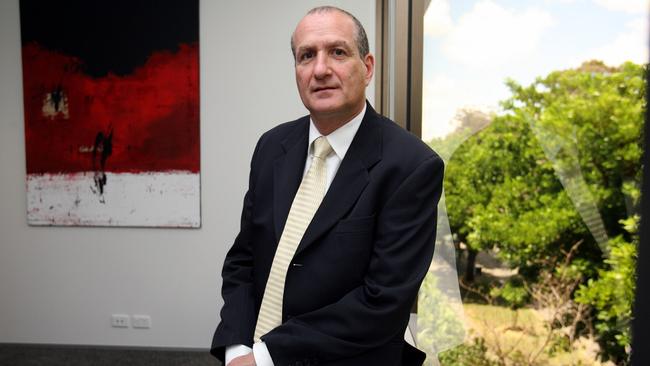
Law firms are confident of weathering any recession but alert to possible negative effects on their clients in the second half of the financial year.
“We are yet to see strong signs of a slowdown, but certainly there is growing belief that the economic seas will get choppy,” K & L Gates managing partner Nick Nichola told The Australian’s Legal Partnership Survey for the six months to December 31.
Maddocks chief executive David Newman said many of his firm’s clients were warning “they see economic conditions over the next 12 months impacting them”.
“As ever, we are planning to be ready to support our clients as they navigate market volatility and geo-economic instability,” Baker McKenzie’s managing partner Anthony Foley added.
Whether the firms are talking a good game remains to be seen, but if recession bites, they largely expect to control damage effectively – drawing on recent experiences of crisis management during the Covid-19 pandemic.
“We are very aware of the impact global events and the economic slowdown of major economic powers can have on us and our clients and it is something we have planned for before, most recently in 2020 during the first few months of the pandemic,” Mr Nichola said.
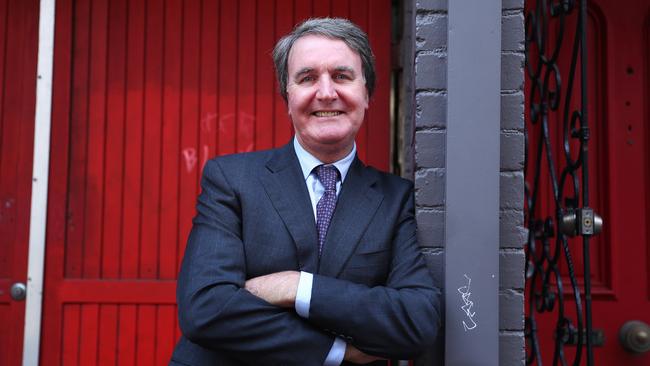
What firms should do in the event of a recession emerged as a theme in the qualitative data accompanying the labour force survey conducted for The Australian by Eaton Strategy + Search.
Partner growth was flat, with a weighted average increase across firms surveyed of 0.04 per cent in full time equivalents in the six months, and 0.13 per cent for the year; and 0.05 per cent in the headcount over six months, with 0.13 per cent for the year. This was echoed in recruitment of the fee-earning lawyers who sit at sub-partner level, with headcounts up 0.01 per cent for the half year and 0.15 per cent for the full year.
These results were recorded against extraordinary factors such as the entrenchment of flexible work arrangements originally brought on by the pandemic and the attempted re-pivot to the office. Firms also grappled with the perennial problems of competing for the best talent and how to make better progress in promoting more women to equity partnership.
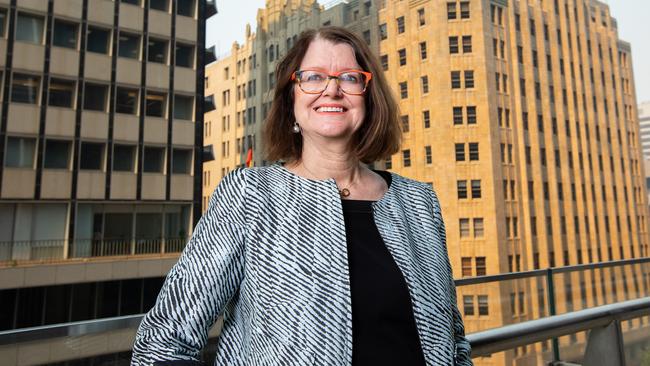
Demand for mergers and acquisitions expertise dropped off after a strong year, but increased in areas such as cybersecurity risk, as businesses scrambled to respond to high-profile data breaches; employment law, as the implications of workplace legislation began to crystallise; and environmental, social and governance advice.
However the newest risk to clients, with the greatest potential to affect hiring, was the growing danger of recession, against the background of the war in Ukraine, and other disturbances in the national and world economy.
“Rising inflation and interest rates are present across the G7, causing clients to consider how well the debt structures created over the last two decades, in an environment of low interest rates, will hold up,” Norton Rose Fulbright chief executive partner Alison Deitz said.
“Manufacturing, construction, food services and leisure are among sectors that are expected to feel the full brunt of economic headwinds,” Ms Deitz said, adding the “challenges experienced globally are creating opportunities”.
This included in “energy transition, which has received an even greater impetus given the complex geopolitical environment”.
Ashurst chief executive Paul Jenkins predicted “a more subdued market” as a result of interest rate rises, higher costs and supply chain disruption. “We are clearly entering a period of economic uncertainty and this will have an impact on our business and those of our clients,” Mr Jenkins said.
The upside is that most respondents believe they are well-positioned to balance out recessionary effects in some of their work with an uptick in others.
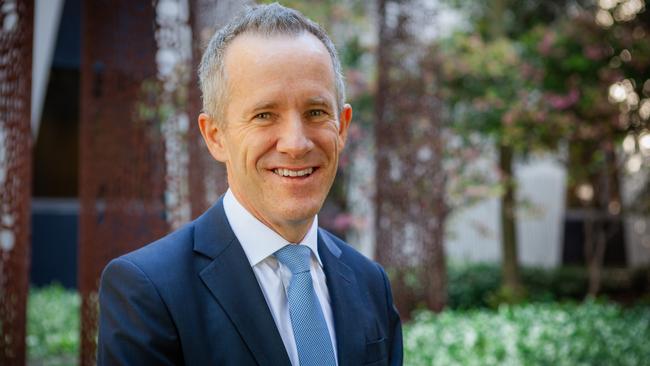
Ashurst’s Jenkins added: “Other parts of our business are likely to grow even in a recession, such as practices focused on renewable energy projects and other infrastructure.”
Herbert Smith Freehills executive partner for Australia and Asia, Andrew Pike, said the firm remained optimistic about its “strong track record of supporting our clients with strategic counsel in all economic cycles”, while Baker McKenzie’s Foley said: “We expect that our own lawyers will continue to be in demand in a range of areas.”
Clayton Utz’s chief executive partner Bruce Cooper said smart people who could work collaboratively across corporate transactional workstreams were “always in demand, in addition to specialists who respond to opportunity pools in the current market”.
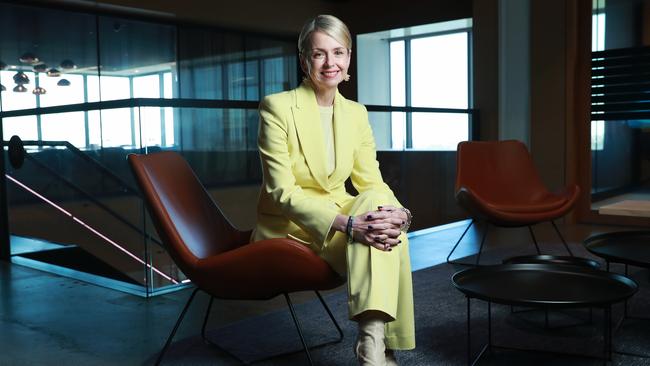
PwC legal leader Nick Brown designated energy transition and cybersecurity as “extraordinary macro themes” that would not only “require investment from our clients and governments through all parts of the cycle”, but also “drive other more traditional offerings such as M&A, corporate advisory and workplace law as market participants position themselves for the future”.
King & Wood Mallesons chief executive partner in Australia, Renae Lattey, said “despite a likely slowdown in global and domestic markets” there would be opportunities in 2023 and while she was watching lead economic indicators closely, at the moment she expected the year to be similar to 2022 in terms of activity levels.
Slowdown is also a relative term, as MinterEllison CEO and managing partner Virginia Briggs noted. “We are seeing some signs of a slightly slower market in some areas in the first half of FY23 after a very robust FY22 which drove record levels of work,” Ms Briggs said. “We anticipate this will be relatively short term as client demand remains strong across the business with a particular focus on energy, renewables, digital and health.”
Gilbert + Tobin partner and chief operating officer Sam Nickless said a “slight easing” had followed “the extremely busy period that happened during 2021 and into early 2022.

This has been particularly the case in transactional areas as higher interest rates and volatility have slowed down or deferred deal making”.
Gadens CEO Melbourne and Sydney Mark Pistilli said: “We will also use this time to expand our presence in areas which are experiencing a contraction and may distress other firms. We hope to do better than the market given our practice balance.”
M & A and equity capital market (ECM) work had taken a hit from high inflation and increasing interest rates Johnson, Winter, Slattery managing partner Jeremy Davis said. “We expect renewables projects, disputes and restructuring work to pick up but it is unclear whether that activity will fully replace [that] softening … market,” Mr Davis said.
Allens managing partner Richard Spurio said M & A work was recovering: “We expect that to accelerate in the new year as the market adjusts to higher interest rates, with the energy transition and lower valuations for technology targets helping to generate deal flow.”
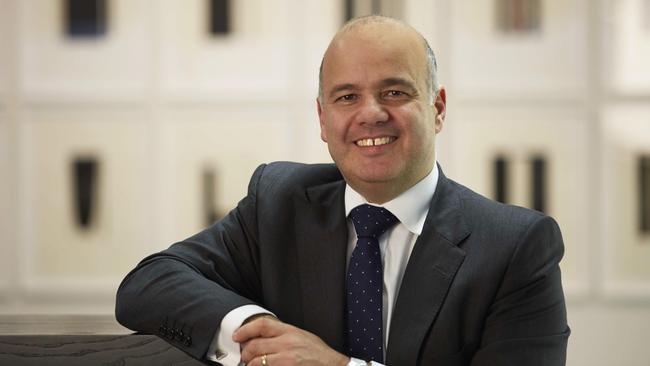
Gadens was among many firms stressing its strong growth and headcounts for various firms bear this out. Gadens’ partner headcount was up 6.3 per cent in six months and 9.1 per cent for the year, with plans to invest further. EY law leader for Oceania, Sarah Ralph said the plan was to double the practice in size by 2026, Herbert Smith Freehills would continue its “heavy investment” and Dentons chief operating officer Maureen Migliazzo described a “major growth trajectory” — with partner growth of 13.2 per cent over six months, and 8.5 per cent for the year.
Among firms that grew in double digits were Hall & Wilcox with 10.3 per cent over six months and 14.6 over the year, and Gilbert + Tobin with 16.1 per cent and 13.5 per cent in the respective periods.
Hamilton Locke, on an expansion spree, recorded a 35.7 per cent rise in partner numbers in six months and announced its expansion to Auckland. Johnson Winter Slattery, with a 17.4 per cent increase in partners for the year, launched a Canberra office.

However the sense of urgency was not universal.
“We will not be hiring at quite the rate we did during the past year or so,” Gilbert + Tobin’s Nickless said. “[The rate of] people moving overseas has now returned to normal levels and while we are still busy, it is not as intense as it was. We will still be looking for leading talent in areas of need.”
Corrs Chambers Westgarth CEO and senior partner Gavin MacLaren said the search for top talent would be constant, as usual.
Across the board, flexibility has now been cemented as crucial to the hiring offer, as part of the wash-up of the pandemic — which includes a distaste for long commutes, concern about exposure to Covid-19 on public transport and in the office — and the desire for a more manageable work/life balance.
Tomorrow: The War for Talent






To join the conversation, please log in. Don't have an account? Register
Join the conversation, you are commenting as Logout